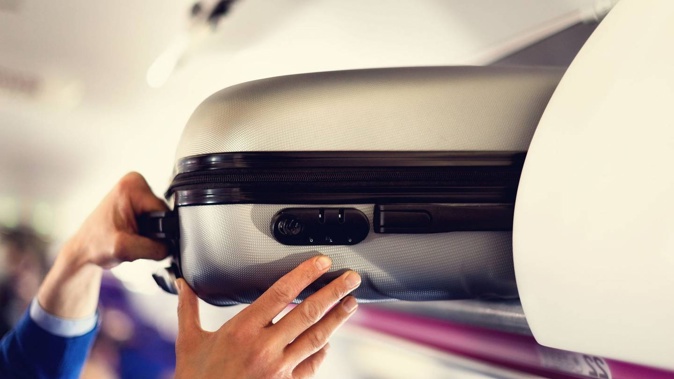
Is theft on aeroplanes on the rise? And if so, how can we prevent it?
Airlines do not disclose data regarding in-flight theft. However, one only has to peruse recent headlines and events to assume the number of theft incidents may be on the incline.
In December, a man was found guilty of stealing US$23,000 ($37,677) cash from three travellers flying from Ho Chi Minh City to Singapore, while police charged a man in October on a flight from Taipei to Tokyo who was accused of several in-flight pilferages.
According to a travel insurance expert, not necessarily. Jonathan Frankham, general manager UK at World Nomads Travel Insurance, thinks we should instead heed the headlines as a reminder to be careful with our possessions when travelling on planes, reports Daily Mail.
“While we’ve observed no discernible trend in claims submitted to suggest in-flight luggage theft is historically prevalent or on the rise in recent years, it’s still crucial to be vigilant and take steps to ensure the security of possessions and important documents,” Frankham said.
When travelling, most people carry high-value belongings with them, such as wallets, phones, passports, laptops, cameras and even loose cash. This, according to Frankham, can provide easy pickings for light-fingered travellers.
He said: “It’s a calculated gamble on the part [of the thieves], exploiting travellers’ sense of security once snugly seated on board. Yet, it’s during these moments — the buzz of mealtimes, the dimming of lights, or those quick dashes to the loo — that thieves might try their luck.”
/cloudfront-ap-southeast-2.images.arcpublishing.com/nzme/4CHHNY7V55EBNFWUA6NZQ4VNRM.jpg) While there are no concrete statistics for in-flight theft to indicate whether they are on the rise, several high-profile cases recently have brought the issue into the headlines. Photo / 123rf
While there are no concrete statistics for in-flight theft to indicate whether they are on the rise, several high-profile cases recently have brought the issue into the headlines. Photo / 123rf
So, how do you avoid becoming a victim of plane pilfering?
Pack smarter, not harder
Frankham says “packing smartly is crucial”, encouraging travellers to invest in a sturdy backpack that can be securely locked.
Marking your luggage with colourful zip ties is also a good idea, not only for easy identification but for security. “[If] the zip tie is missing or tampered with”, he says, “it’s important to alert a staff member immediately.”
Frankham says when storing larger bags in overhead lockers, one should place them in the locker on the other side of the aisle so you can easily spot if someone is trying to go through your bag.
Keep your high-value belongings on you
For valuable items such as passports, cash, and phones, Frankham says: “The best practice is to use a secure waist pouch or carry them in your pocket.
“Avoid leaving them unattended altogether and always keep them in sight. This not only minimises the risk of theft but also ensures that insurance claims are not negatively impacted due to negligence.”
/cloudfront-ap-southeast-2.images.arcpublishing.com/nzme/LT3NKNC54ZFS3JHCCPEEE56ZJA.jpg) Travel insurance expert Jonathan Frankham advises travellers that if a theft takes place, they should report it to the airline as soon as possible.
Travel insurance expert Jonathan Frankham advises travellers that if a theft takes place, they should report it to the airline as soon as possible.
What should you do if you fall victim to in-flight theft?
Frankham advises travellers that if a theft incident takes place, they should report it to the airline as soon as possible. According to the Montreal Convention’s guidelines, victims of theft are offered compensation for lost or damaged goods on international flights, provided they let the airline know immediately.
“Secondly”, says Frankham, “travellers should obtain all necessary documentation to support their case. This includes requesting a Property Irregularity Report (PIR) from the airline. Additionally, it’s vital to keep all related documents such as tickets, luggage tags, and receipts for any emergency purchases, as these form an essential part of any subsequent insurance claims.”
Frankham encourages people to notify local police and secure a police report once a theft has occurred because it provides official documentation needed for insurance claims.
Take your Radio, Podcasts and Music with you









